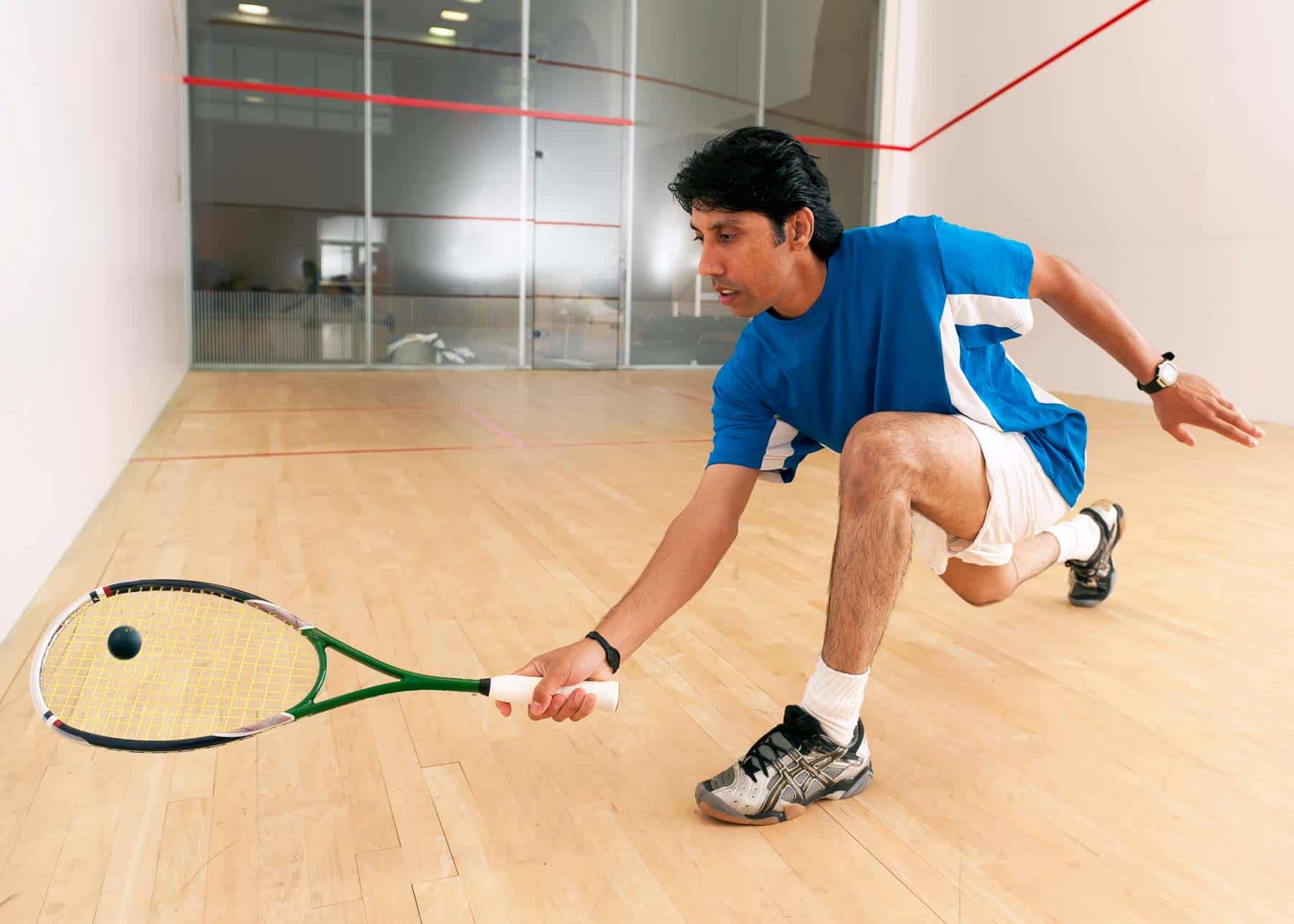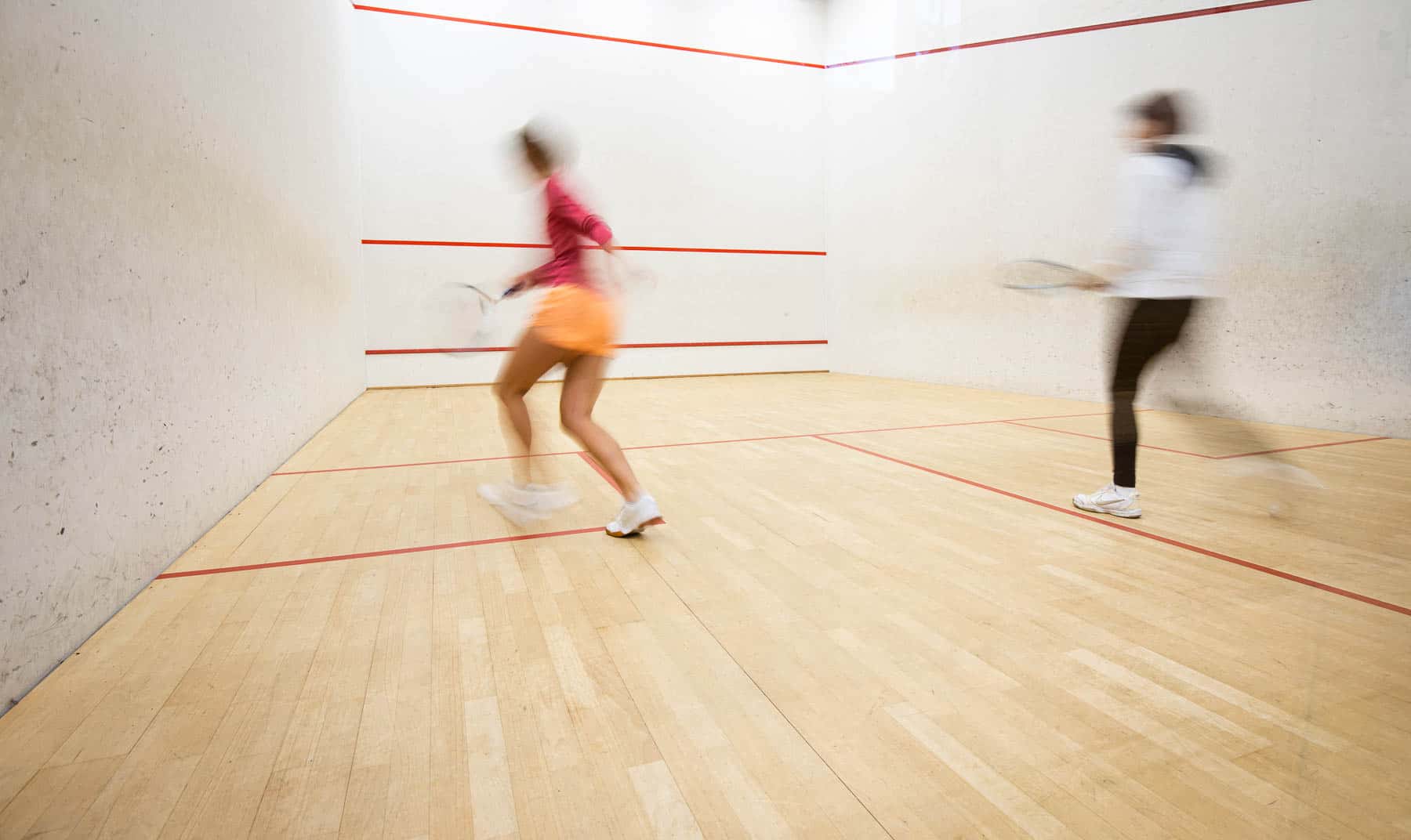How hard is squash to learn?
Introduction
Squash is a fast-paced and exciting racquet sport that has gained popularity around the world in recent years. Known for its high-intensity gameplay and numerous physical and mental benefits, squash is a great sport for players of all ages and skill levels. But for those who are new to the game, the question often arises: just how hard is it to learn squash?
In this article, we’ll take a look at the various challenges that new players may face when learning squash, and provide some tips and encouragement for those looking to give the sport a try. Whether you’re an experienced athlete looking for a new challenge, or a complete beginner looking to improve your physical and mental health, squash may be the perfect activity for you.
The game of squash
Squash is a racquet sport that is played by two players (or four players in doubles) in a four-walled squash court. The objective of the game is to hit the ball against the front wall of the court in such a way that your opponent is unable to return it. Points are scored when the squash ball is not returned, or when the opponent commits a fault (such as hitting the ball out of bounds or into the tin), noting that if the ball bounces more than once the rally is lost.
When hitting the ball, you are able to hit the ball off any wall, including the back wall.
To find squash courts or a squash club in Port Macquarie click here.
Popularity of Squash
Squash is a popular sport around the world, with millions of players and numerous professional tournaments taking place each year. It is particularly popular in countries such as England, Canada, and the United States, and is played at a recreational and competitive level by people of all ages. Squash is also a popular choice for people looking to get in shape, as it is a high-intensity sport that can provide a full-body workout.
How difficult is it to learn squash for the average person?
While the sport may seem intimidating to those who have never played before, it is actually a very accessible activity that can be enjoyed by people of all ages and skill levels. In this article, we’ll take a look at the various challenges that new players may face when learning squash, including the physical demands of the sport, the technical skills required to play well, and the mental challenges that come with strategic gameplay.
Through this assessment, we hope to provide a realistic and light-hearted look at the process of learning squash, and offer some encouragement and tips for those who are interested in giving the sport a try. Whether you’re a seasoned athlete looking for a new challenge, or a complete beginner looking to get in shape and improve your mental and physical health, squash is a rewarding and enjoyable activity that is well worth the effort. So, let’s get started!
The physical demands of squash
One of the main challenges that new players may face when learning squash is the physical demands of the sport. Squash is a high-intensity activity that requires a good level of cardiovascular fitness, as well as strength, speed, and agility. Players must be able to move quickly around the court, chasing down shots and making quick, explosive movements to hit the ball. They must also have the endurance to sustain this intensity for the duration of a match, which can last anywhere from 20 minutes to over an hour depending on the level of play.
To prepare for the physical demands of squash, it is important to incorporate cardiovascular and strength training into your workout routine. Activities such as running, cycling, and jumping rope can help to improve your endurance and speed, while strength training exercises such as squats, lunges, and push-ups can help to build the muscles needed for explosive movements on the court. It is also a good idea to practice plyometric exercises, which involve quick, explosive movements and can help to improve your agility and power on the court.
While the physical demands of squash may seem daunting at first, the good news is that these demands can be gradually built up over time through consistent training and practice. With a little bit of effort and dedication, anyone can learn to play and enjoy the numerous physical and mental benefits that the sport has to offer.
Technical skills required for squash
In addition to the physical demands of squash, new players must also learn the technical skills required to play the game effectively. Squash involves a variety of different strokes, each of which requires a specific technique and can be used to hit the ball to different parts of the court. Some of the most common strokes used in squash include:
- The drive: This is a basic stroke used to hit the ball hard and straight down the middle of the court. It is a good shot to use when you want to put pressure on your opponent and force them to defend.
- The boast: This stroke involves hitting the ball off the side wall and into the back corner of the court. It is a good shot to use when you want to open up the court and create more space for yourself.
- The drop shot: This is a soft shot that is hit low and softly, with the intention of making it difficult for your opponent to reach. It is a good shot to use when you want to keep the ball in play and force your opponent to move around the court.

Mastering these and other strokes takes time and practice, and it is a good idea to work with a coach or experienced player to improve your technique. You can also use drills and other training exercises to help you improve your stroke mechanics and develop a more consistent game.
While learning the technical skills of squash may seem intimidating at first, the good news is that these skills can be gradually built up over time with consistent practice and guidance. With a little bit of effort and dedication, anyone can learn to play squash and enjoy the numerous physical and mental benefits that the sport has to offer.
The mental challenges of squash
In addition to the physical and technical demands of squash, the game also presents a number of mental challenges that new players must learn to overcome. Squash is a fast-paced and strategic game that requires players to think on their feet and make quick decisions. Some of the mental challenges that new players may face include:
- Strategizing: Squash is a game of strategy, and players must learn to think ahead and anticipate their opponent’s movements in order to succeed. This involves analyzing the strengths and weaknesses of your opponent, as well as your own, and coming up with a game plan that allows you to use your strengths to your advantage.
- Decision-making: Squash requires players to make quick decisions on the court, such as where to hit the ball, when to play a shot, and when to defend. These decisions must be made under pressure, and players must learn to stay focused and composed in order to make the best choices.
- Managing emotions: Squash can be an emotional game, and players must learn to manage their emotions and stay calm under pressure. This includes managing the highs and lows of the game, as well as dealing with any setbacks or mistakes that may occur.
To improve your mental toughness in squash, it can be helpful to practice visualization techniques, such as picturing yourself succeeding in different game situations. It can also be helpful to practice mindfulness, which involves focusing on the present moment and letting go of any negative thoughts or emotions. Additionally, working with a coach or sports psychologist can provide valuable guidance and support in managing the mental challenges of squash.
While the mental challenges of squash may seem daunting at first, the good news is that these skills can be gradually developed and improved with practice and guidance. With a little bit of effort and dedication, anyone can learn to play squash and enjoy the numerous physical and mental benefits that the sport has to offer. Checkout Squash Guider for free guides and resources.
Summing Up…

Squash is a thrilling and rewarding sport that can be enjoyed by people of all ages and skill levels. While it may seem intimidating at first, learning squash is a process that takes time and practice, and the challenges that new players face can be gradually overcome with effort and dedication.
Whether you’re an experienced athlete looking for a new challenge, or a complete beginner looking to improve your physical and mental health, squash is a sport that is well worth the effort. The physical demands of the sport can be prepared for through consistent training and practice, the technical skills required can be mastered with guidance and drills, and the mental challenges of the game can be overcome with visualization techniques and mindfulness.

So, if you’re considering giving squash a try, give it a go! Remember that learning any new sport takes time, but the benefits of playing squash (such as improved physical and mental health) are well worth the effort. With a little bit of patience and determination, anyone can learn to play squash and enjoy all that this exciting and rewarding sport has to offer. So wherever you are, find some squash courts close by and go for it.
Play squash at Port Macquarie Squash Club
Looking for squash courts near you? The Port Macquarie Squash Club is the only place left in town. They have squash rackets for and squash balls to hire from 10am to 7pm every day. If you are looking for squash players to hit against, or coaching, simply connect via our website contact form.
